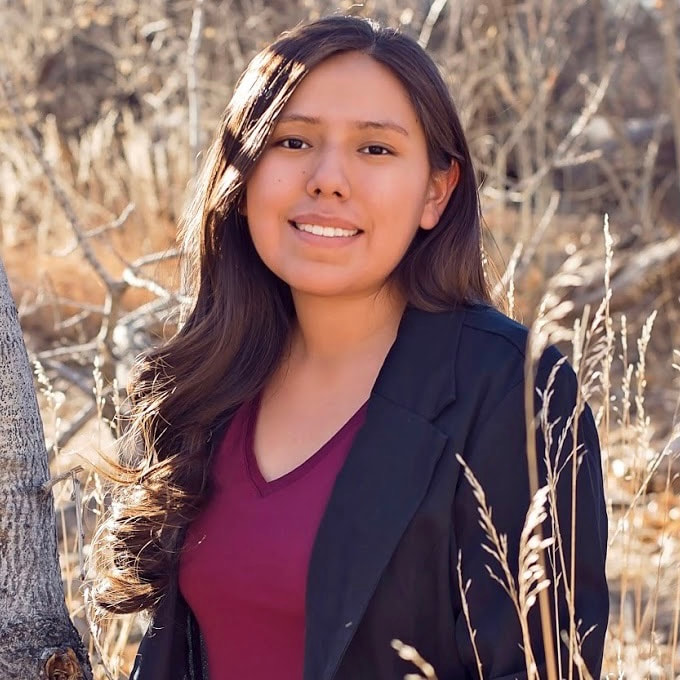The second oldest. |
|
Danielle Emerson is a Diné writer from Shiprock, New Mexico. She is a graduate of Brown University, where she obtained a B.A. in Education Studies and a B.A. in Literary Arts. Her writing focuses on healing, cultural knowledge, and family. Danielle also writes personal narrative, fiction, poetry, and theatrical plays. She is the winner of the 2022 Aliki Perroti and Seth Frank Most Promising Young Poet Award for her poem “shíma yazhí ahéheeʼ / thank you, auntie.”
|
